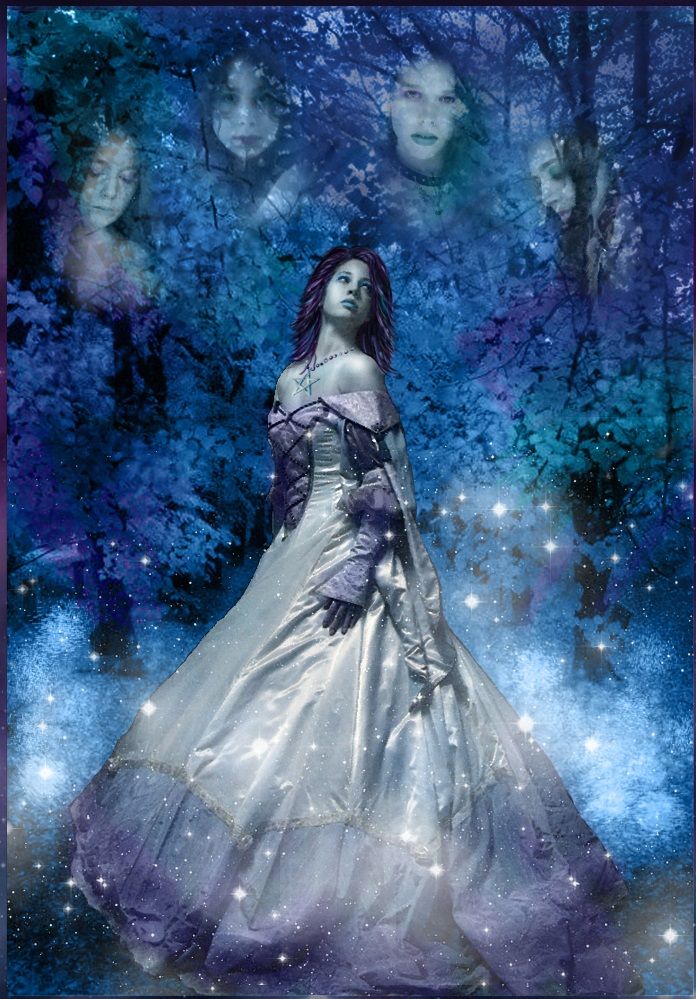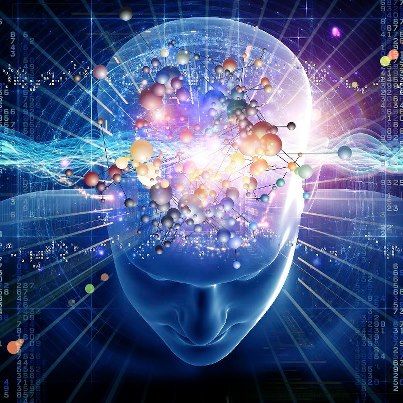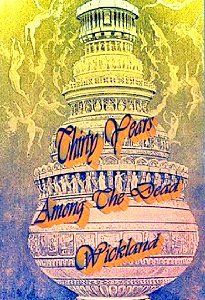Lately I've come to take the idea of spirit attachment seriously.
In spirit attachment, non-corporeal beings (almost always those who have lived on earth and passed on) hang around near the earth plane and gravitate to the living. They seem to sort of penetrate and mix with the aura (etheric body, vital body, Allan Kardec's concept of the perispirit) surrounding or providing a kind of blueprint for the physical body. They are then in a position to influence the thoughts and moods of those they have "stuck" to.
Spirit attachment is not to be confused with possession. In possession, a spirit (or occasionally more than one) completely takes over the mind of a living person. The phenomenon is rare, which is probably just as well. There are a few cases of a benign, or at least harmless, possession -- the most famous being the case of Lurancy Vennum, which has unfortunately acquired the silly name of "the Watseka Wonder."
Of course, possession perfectly supplies the ingredients of horror films, TV shows, and books. I sometimes think the greatest barrier to serious study of the paranormal in our time is not the skepticism of scientific materialists, who at least tend to ignore the subject. The biggest handicap is the entertainment industry, and its ignorant writers and producers who think only about how to make it as creepy and sensational as they can.
Back to spirit attachment, which possibly everyone experiences to some extent. I know that sounds extravagant and I have till recently not been keen to spend much time researching it. However, a few decades ago I volunteered to be a subject at a class for developing psychics in Berkeley. A dozen or more students first wrote down their impressions (so as not to influence one another, a smart practice) and then read out loud what they thought they'd picked up from my aura. They described dozens of spirits that were supposed to be influencing me. I knew next to nothing about spirit attachment then, and I must have looked alarmed or expressed concern. The facilitator tried to reassure me. "It's no big deal. We all have lots of spirits in our space."
I didn't feel like following it up, and put it out of my mind for years.
Well then, what is the evidence for spirit attachment?
The first is self-awareness. If we watch how our mind works as much as we can throughout the day, we will notice anomalies. Impulses to do things we know we shouldn't do, wouldn't dream of actually doing ... so why does the thought appear? Or we may be driven to actually give in to temptations that we have every reason to resist, like snacking on junk food.
Incongruous moods: everything's fine, no serious problems chasing us and nipping at our hocks. Why are we depressed and the feeling just won't go away? Or maybe we're irrationally jolly. Or we want things that we know from experience will be disappointing, but something or someone draws us toward them.
Naturally, psychiatrists and psychologists have non-paranormal explanations. Given all the things that can go wrong with our physiology and biochemistry, why shouldn't some of them drive our moods and impulses? But except in brain pathology, no one has shown a reliable link between physical maladies and mental states. Plenty of people with bodily ailments and chemical imbalances are normal, high-achieving.
Then there's the quackery of "unconscious" theories of motivation that still rule in some quarters of the psychotherapeutic professions. Few would deny that the mind has an unconscious dimension, but the idea that it erupts like Vesuvius or sends out tremors to the conscious mind is no more than a theory or a faith -- undemonstrable and and unfalsifiable.
Introspection isn't offered as a prima facie case for spirit attachment, just a technique worth considering. But, as in most areas of psychical research involving survival of death and post-mortem communication or influence, the best evidence arrives through mediumship.
Unfortunately studies of mediums have largely concentrated on talking with spirits. Relatively little work has been done to learn about spirit attachment. But there is one big-time exception.
Carl Wickland (1861-1945) was a medical doctor who happened to be married to a medium. Wickland developed a technique to drive the attaching spirits out of the victims whose lives they were messing up. The method was primarily electric shock, which the attaching spirits felt as torment. Electroshock, which was still in use at some psychiatric hospitals as late as the 1960s, is now in bad repute and justifiably so. But when performed with understanding, it freed the patient from a meddlesome psychic leech.
Mrs. Wickland had the apparent ability to offer a temporary body to the obsessional spirit, making it possible for Wickland and others to talk to the spirit (which, however, was still invisible). To send a nasty spirit to occupy his wife, even for a brief time, was bold; I can't imagine taking the chance if I had the ability, even if my wife was fully willing.
The spirits were at first argumentative, tiresome, unaware they had died. Wickland "counseled" them until they began to see the light and were willing to be taken under guidance by helping spirits who would teach them about spiritual, as opposed to earthly, reality. They were then led away to discover higher realms and Mrs. Wickland was no longer their hostess.
Wickland described his therapy for the afterlife in Thirty Years Among the Dead (1924). It's tempting to quote from the transcriptions of his "conversations" with disembodied pests, but it would take too much space to give their flavor. I like his style: he understood that the spirits were confused, addicted, filled with inappropriate emotions from their earth lives, and he undoubtedly wanted to help them as well as the patients they'd been driving nuts. He was firm with them, told them in no uncertain terms how they misunderstood their situation, but always held out hope that they could escape the misery they'd made for themselves.
The session transcripts get repetitious after awhile. Once you grasp what he's doing and how, it probably isn't necessary to finish reading the long book. Wickland was faced with the problem that has beset so many writers describing paranormal phenomena, at least as far back as Frederic Myers's Human Personality and Its Survival of Bodily Death (1903): they don't want to bore the reader with too many examples, but at the same time it's important to preclude accusations that they were just cherry picking a handful of especially dramatic cases. Numbers play a big role in scientific evidence. A few instances can be dismissed as anecdotes, flukes, or illusory observations. But when the totals start to add up, and up, the laws of statistical probability appear -- and there's nothing more scientific than statistical significance.
I wish Wickland's research could be replicated under modern experimental conditions (although I've never heard any suggestion that his results were fraudulent). But that would require a new Dr. Wickland and a new Mrs. Wickland. Our current academic parapsychologists would steer clear of them.






2 comments:
Fascinating. I should look for this book. Maybe there's a free version in Google Books.
Stogie,
There are several free versions online, including the one I linked to. Probably at least one is downloadable to a tablet or e-reader.
Post a Comment